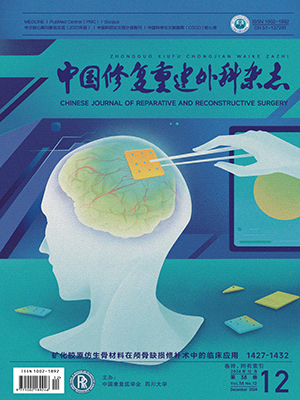Objective To determine whether transplanting olfactory ensheathing cells (OECs) is effective in controlling or reversing the deterioration caused by amyotrophic lateral sclerosis (ALS). Methods Between February 2003 and April 2006, 327 patients (241 males and 86 females) with probable or definite ALS (diagnosed according to the El Escorial criteria) received the OECs transplantation. Their ages ranged from 20 to 84 years (51.6±11.1 years). The duration of symptoms before surgical treatment was 4-8 months to 13 years (2.9±2.0 years). OECs were cultured and injected into pathological regions of the spinal cord and/or bilateral corona radiata of the brain; the patients were divided into three groups, group A (cord only,n=29), group B (cord and brain,n=6), and group C (brain only,n=292) based on the transplant sites. Results The patient’s neurological function was assessed both before and at 4 weeks after transplantation by using the Amyotrophic Lateral Sclerosis Functional Rating Scale (ALSFRS) of the ALS CNTF Treatment Study (ACTS). The scores were increased from 17.2±8.6 preoperation to 20.1±9.7 postoperation in group A (P<0.05),from 24.2±6.8to 25.7±6.6 (P>0.05) in group B, and from 20.3±8.6 to 22.0±9.4 (P<0.001) in group C.There were no significant difference in increased ALSFRS scores among the threegroups (P>0.05). The total improvement rate of neurological function was 77.1% (252/327). The result of electromyographic examination showed that spontaneouspotential diminished and/or disappeared, the amplitude of the motor unit actionpotential decreased remarkably and the numbers of motor unit action potential greatly increased in 261 cases (79.8%). Sixteen patients (4.9%) experienced thevarious complications including headache, shortterm fever, seizure attack, central nerve system infection, pneumonia, respiratory failure, urinary tract infection, heart failure, and possible pulmonary embolism; of them, there were 4 deaths(1.2%). Conclusion These preliminary results suggest that the OECs transplantation is effective in controlling or reversing the physiological deterioration caused by ALS.
Citation: HEN Lin,HUANG Hongyun,ZHANG Jian,ZHANG Feng,LIU Yancheng,XI Haitao,WANG Hongmei,GU Zheng,SONG Yinglun,LI Ying,TAN Ke. Short-term Outcome of Olfactory Ensheathing Cells Transplantation for Treatment of Amyotrophic Lateral Sclerosis. Chinese Journal of Reparative and Reconstructive Surgery, 2007, 21(9): 961-966. doi: Copy
Copyright © the editorial department of Chinese Journal of Reparative and Reconstructive Surgery of West China Medical Publisher. All rights reserved




